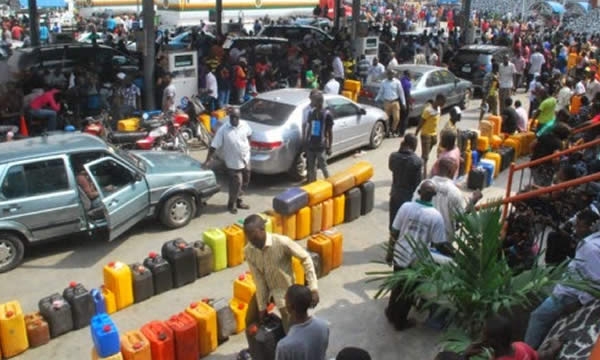Fuel scarcity has become a persistent challenge in Nigeria, with the resultant long queues at filling stations across the country leaving many commuters and motorists stranded.
The Major Oil Marketers Association of Nigeria (MOMAN) said they are working with the NNPC to improve the distribution of petrol across the country.
The MOMAN said members of the association would be working late and during the weekend to bridge product supply gaps and push out more products than they normally did.
Reacting to the long queues at the filling stations, the NNPC attributed the queues Lagos and Abuja to ongoing “road infrastructure projects” around Apapa and access road challenges in some parts of Lagos depots.
“The recent queues in Lagos are largely due to ongoing road infrastructure projects around Apapa and access road challenges in some parts of Lagos depots,” Mr Adetunju said.
He said the gridlock is easing out and NNPC has programmed vessels and trucks to relieve depots and loadouts from depots to various states are closely being monitored.
“Abuja is impacted by the challenges recorded in Lagos. NNPC Retail and key marketers have intensified dedicated loading into Abuja to restore normalcy as soon as possible.”
“We want to reassure all Nigerians that NNPC has sufficient products, and we significantly increased product loading including 24-hour operations in selected depots and extended hours at strategic stations to ensure products sufficiency nationwide.”
“We are also working with the NMDPRA, MOMAN, DAPPMAN, IPMAN, NARTO, PTD, and other industry stakeholders to ensure normalcy is returned, ” he said.
Meanwhile, major marketing group, IPMAN, said it was caused by high prices imposed by fuel depot owners who store the product for the NNPC.
Fuel scarcity has continued to appear and disappear since January this year despite the hike in the cost of the commodity by oil marketers without any approval from the Federal Government or sanctions imposed on them.
In October, fuel scarcity hit major Nigerian cities including Abuja and Lagos. At the time, the Nigerian Midstream and Downstream Petroleum Regulatory Authority (NMDPRA) blamed the shortage on flooding in Lokoja, the Kogi State capital, that stopped fuel truckers from dispensing.
However, weeks after the flood receded, queues resurfaced as many filling stations were closed, while others were besieged by motorcyclists, tricycle owners, as well as private and commercial drivers.
PMS is sold at different prices in various fuel stations across the country.
In Abuja, some filling stations sold petrol to motorists at N179. In Ekiti, some filling stations were seen dispensing petrol at between N260 and N270 per litre as against the N165 pump price. Meanwhile, in Enugu, fuel was sold to motorists at N179 while others sold it for N240 – N245 per litre.
Rather than speak on the matter, the Federal Government, through its Nigeria Midstream and Downstream Petroleum Regulatory Authority, has remained mute on the issue.


